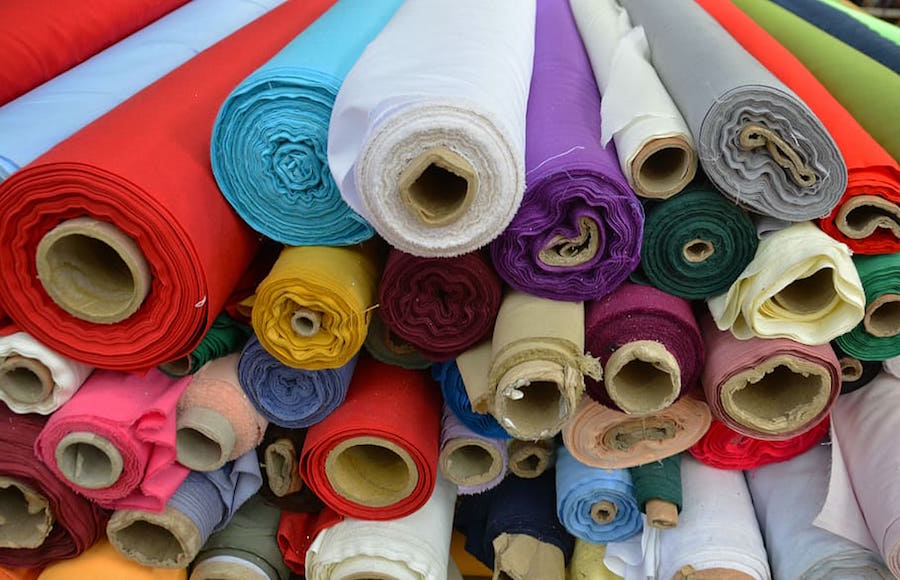Chloé Bailey and Joya Cooper-Hohn
The covid-19 pandemic has had a profound effect on the global economy. The reality of global supply chains, whereby production of goods has been increasingly outsourced to low-labour cost countries, has left vulnerable and low-paid workers in the supply chain most at risk to the social and economic shocks of this crisis.
The impact of covid-19 on global supply chains has been particularly severe in the apparel industry. As consumer markets have entered lockdown, demand for apparel products has nosedived. At the same time, garment supply chains have fractured under a supply shock. China’s lockdown and travel restrictions imposed at the beginning of the year led to delayed and cancelled exports of raw materials. This has been followed by national lockdowns in garment manufacturing hubs including India, where factories and textile mills have been forced to close, further disrupting the supply chain.
As the crisis has unfolded, many apparel companies have been criticised for their actions that have seemingly placed concern for profits over workers’ rights. To protect their businesses and mitigate the effects of disruption, brands and retailers have suspended production, with devastating knock-on effects on their suppliers. Garment manufacturers are seeing large orders cancelled or suspended, estimated to amount to more than $3 billion USD worth of goods. A study by Penn State found that more than half of suppliers in Bangladesh had their in-process, or already completed, orders cancelled by buyers. Although some brands such as H&M, Inditex and PVH have pledged to honour orders, this is not widespread. Garment manufacturers often pay upfront production costs, so are left to shoulder the financial burden of cancelled orders. The impact of these cancellations has a ripple effect down the supply chain, with textile suppliers also facing delayed or reneged payments.
Cancelled orders, factory closures, and declines in demand have caused a spur of layoffs and lost incomes for workers. Most garment production occurs in countries with limited labour protections and weak social safety nets, exacerbating worker vulnerability to supply chain disruptions. One million Bangladeshi garment workers have been fired or furloughed, many without pay. Reports from manufacturing hubs across the globe highlight the dire financial situation that workers are now facing as a result of factories suspending operations. Vulnerable garment workers, especially migrants and those in the informal sector, are at severe risk of being pushed further into poverty. Nationwide lockdowns in countries such as India have also left thousands of migrant garment workers stranded without access to basic provisions, facing homelessness and hunger.
In Tamil Nadu, where the Freedom Fund’s hotspot supports frontline NGOs to address exploitation of women and adolescent girls in textile spinning mills, the impact of covid-19 has been severe. With the garment industry effectively shut down, textile workers are facing extreme hardship, including non-payment of salaries. Many young women and migrants remain in hostels on mill premises, where cramped accommodation and a lack of adequate facilities increases the risk of contracting covid-19. Vulnerable workers living in migrant settlements and migrant workers in the clutches of middlemen are also facing challenges in accessing food assistance or basic sanitary supplies.
Where some garment manufacturing units have stayed open and shifted production to manufacture personal protection equipment (PPE), workers are being pressured to continue to work without adequate health and safety protections. Ensuring labour standards are upheld is vital. This includes in manufacturing hubs like Los Angeles where the garment sector is largely supported by undocumented immigrants and females, who are already often exploited, charged illegal wage rates, and made to work in poor conditions.
Governments in garment exporting countries have responded to the crisis by introducing financial stimulus packages and worker protection policies to ensure workers continue to receive a wage or severance pay. However, these are likely to provide only short-term relief, and exclude some of the most vulnerable workers such as migrants or those in the informal sector.
Globally, civil society is calling on government and business to do more to mitigate the effects of covid-19 on garment workers. Brands and retailers have a fundamental role to play in this effort, by taking action to protect the livelihoods of workers within their supply chains. As a first step, this means honouring the contracts they have signed, by paying for all completed orders and those in production. This is essential in keeping garment manufacturers afloat, and able to pay their workers.
Over the longer-term, this crisis has intensified the need to reform the unsustainable business model at the heart of the apparel industry. In particular, the impact of covid-19 on the sector has thrown the use of unfair purchasing practices by brands and retailers into sharp relief. The pressure on suppliers to cut costs and agree to unreasonable contractual terms to secure brand orders – a key contributing factor to modern slavery in the garment industry – has left them unable to mitigate the economic shocks of covid-19, with workers again left to pay the price.
Covid-19 is a watershed moment for the apparel industry to shift towards more responsible practices. This crisis should force businesses to recalibrate their supply chains and move away from a business model that exacerbates worker vulnerability to modern slavery. Business as usual is no longer an option.



